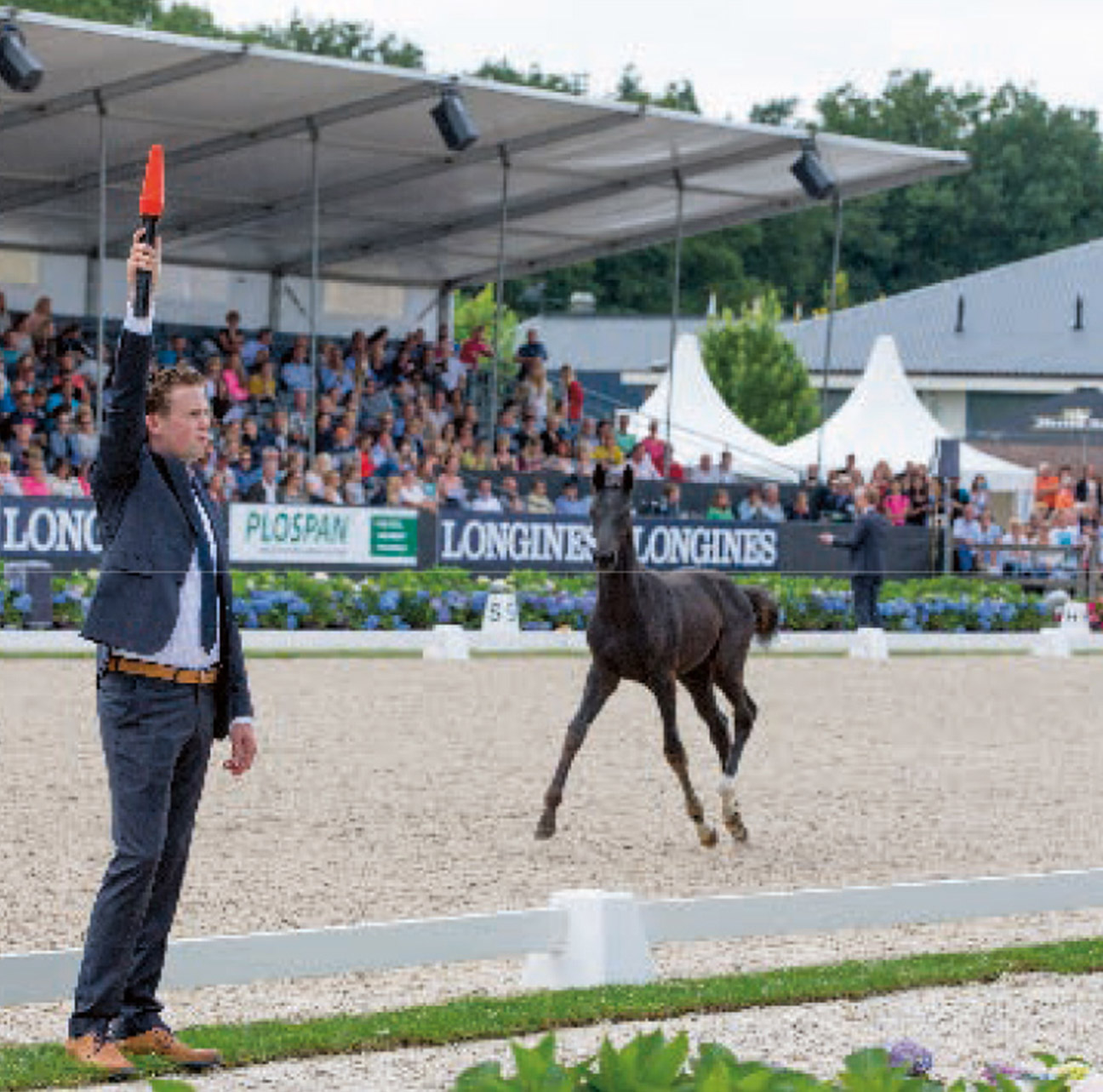Photo by Hippo Foto
Buying a horse at auction
Author: David Ashby
Publication date: 25th September
Buying horses at auction is an exciting time for everyone involved, be they agents, sellers and most importantly buyers. It always seems to me time becomes elastic, when selling my horses, auctioneers seem to rush through quickly, and yet when I am buying they appear to take forever, allowing other bidders to respond before bringing the hammer down.
Buying online
This year particularly there has been a growth in online auctions where one can view photos, videos and often vet reports, but where actually inspecting the horse is perhaps not possible beforehand. It is (hopefully) a happy surprise when the actual horse walks down the ramp of the delivery truck, and with a bit of luck, few people will have had my experience when I purchased a horse from photos alone. On arrival, the parrot mouth was a surprise, but the biggest frustration was when I turned him out to get over the journey. Three days later, as we continued trying to catch him while he circled the paddock, I called the vendor, whose reply ‘oh, I never turned him out’ was something of a disappointment.
On the other hand
That said, other vendors are fantastic and I recall the story of a yearling purchased in England and found to be making a noise on the lunge. The trainer rang the vendor to explain, and received the response the noise it made was audible all the way from Newmarket to Tipperary and that there was a box on the way to pick it up.
Careful consideration
Whether bidding on the selling grounds or ‘online’, similar considerations apply to avoid making a potentially expensive mistake. Whilst many people can afford to take a chance on a cheap horse knowing there may be outlay for corrective veterinary work, expensive horses and foetuses need more careful consideration; particularly if they are to be insured.
Veterinary record
It is a good plan to make sure that, particularly in older horses, any pre-existing medical conditions are known and discussed with an insurer. I see two or three mares a year where colic surgery has taken place and, particularly at winter sales when horses have longer coats, surgery scars are very hard to spot and can be missed by only a cursory examination.
Insurance from ‘fall of hammer’
Nowadays one can buy anything from stallion semen and embryos, competition horses and breeding stock via online auctions and, with regards to insurance, the first thing to consider is whether you require insurance cover from ‘fall of hammer’. This means the horse is insured from the moment the horse becomes your property and requires that you have agreed the coverage will apply with your insurer beforehand. Whilst it is tempting to shop around for insurance premiums to compare after the sale, the exercise means the horse may well be uninsured. Therefore, should something happen the buyer may be responsible for the costs, be that life-saving surgery, or even ultimately paying for a horse that has already died.
Storage coverage
Starting at the beginning of the horse breeding process, buyers looking to purchase stallion semen can easily do so. Whilst it is not often insured in my experience, insurers can grant a simple policy covering storage in a reputable facility (probably not the buyer’s home freezer!) The cover is against physical damage, but it is worth remembering this policy does not guarantee the quality, or that a mare will become pregnant.
Embryo coverage
Insurance of frozen embryos is becoming more common, and when purchasing and seeking insurance it is likely the insurer will want to know details of the vet involved and the storage facilities that have been used. Insurance is much easier to obtain when well-recognised experts and facilities have been used by the seller.
Prospective foal insurance
Foetus, or prospective foal insurance as it is often known in the insurance industry, is commonplace nowadays, either on the maternal dam or in a recipient mare. For this, insurers will require pregnancy certificates, evidence of the mares breeding record and soundness. When buying this cover I strongly recommend purchasing a policy until at least 30 days of age. Insurance policies ending when the foal stands and nurses, or at 24 or 48 hours after birth, can leave the foal owner without cover if a foal is alive, but already suffering from a serious health condition and the policy expires.
Policies for adult horses
As horses age the insurance becomes much simpler, and most people are probably aware of the options for mortality, loss of use and vet fees. Buyers should always be certain that coverage is in force for all countries the horse will visit during the period of insurance.
Generally, policies cover Europe without additional charge, but may require a small additional premium to extend worldwide. If loss of use insurance is purchased it may be that additional x-ray views are required, but knowledgeable insurers may waive this subjectivity from a well-known sale.
Summary
So, in summary, whether the purchase is online or in person, via an agent or done by the buyer, insurance is easy to obtain and the best approach is to arrange cover from fall of hammer ahead of the sale.
If you have any questions and/or comments regarding insurance matters, please contact us on telephone: +44 (0)208 968 8600 or email: [email protected].



